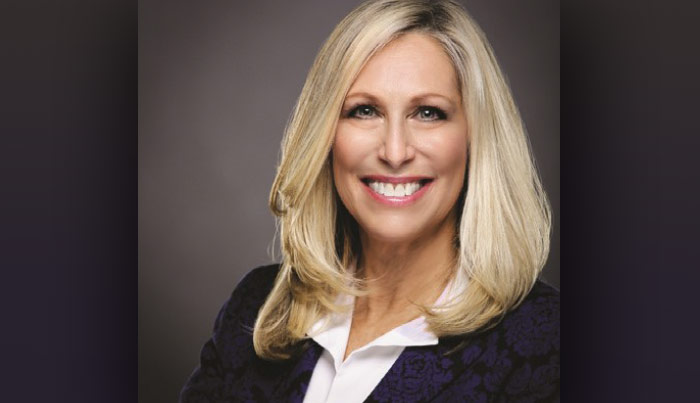Karyn Schoenbart is chief executive of the NPD Group, a global leader in consumer research and one of those quiet corporate jewels that a lot of Long Islanders don’t know about. Her new book, Mom.B.A. Essential Business Advice from One Generation to the Next, came out in August. Contributing editor Warren Strugatch tracked her down in Port Washington to ask about leadership, climbing the corporate ladder and goal setting.
Long Island Press: What were your early years like?
KS: My mother, Anita Schoenbart, was a stay-at-home mom. She was the class mother, the president of the sisterhood, and a role model in showing my brother and me that whatever your job is you can be a hard worker and be passionate about it. She gave me the superpower of being able to remember everyone’s name.
My father Zelman had a sewing machine and vacuum cleaner store on Amsterdam Avenue in Manhattan. He taught me business fundamentals like the difference between revenue and profits and the importance of hard work. They were both incredibly supportive of my brother and me. Both are still alive and they are the best parents.
LIP: Can you describe your leadership philosophy to me?
KS: It’s ‘Say what you’re going to do, then do what you say.’ It starts with having a vision, then articulating that vision so people see how they fit into it and how they can contribute to it. It’s inspiring people to be part of it.
LIP: In March you were named CEO of a well-established company. Is your job maintaining continuity with NPD’s culture and traditions, or steering forward in a new direction?
KS: NPD is a terrific data company. We made the decision a few years ago to change our orientation from being about the data which is from the past, to being predictive and helping people with their future business problems. Now we have to articulate that vision and inspire people to see how their piece fits into the puzzle. My role is to help people understand the long term benefits to our clients. One of the key skills in my role is communicating: up, down and across.
LIP: Have you found a way to eliminate the so-called CEO echo chamber where people tell you only what they assume you want to hear?
KS: I know that because of my position and my passion it’s hard to say no to me. If people think my idea won’t work, it’s important they know that they can tell me that. Maybe my idea is pink sunglasses. I am teaching myself to say: ‘Let’s just brainstorm all the ways that making these sunglasses pink is a bad idea. I’ll go first.’
LIP: You’ve received regular promotions up the ladder. Were these promotions planned on your end, or the result of recognition from above?
KS: A sponsor is someone who sees something in you and keeps pushing you forward. I talk about the importance of sponsors in my book. In my career, Tod (Johnson, NPD’s executive chairman and preceding CEO) has been a sponsor. When Tod first offered me the job of being head of all business units my first response was to say no. I really liked the job I was in, managing one unit. I wasn’t sure I wanted the job of managing my peers.
Tod said go home and sleep on it. I did. I talked about it with my husband, who said first of all you can do this job, and if you don’t take it someone else will. I thought about the accomplishments of my team and I had to admit I was probably the best person for the job. This is the modesty thing many women have. We find it hard to say out loud that yes, I am the person who’s most qualified.
LIP: Did the modesty thing reoccur when you were offered the president’s job?
KS: One of the first meetings I had with Tod was a career development lunch, which I asked for. Tod asked me for my goals. I wrote out five pages worth. He turned around and said, ‘I think your goal should be to be president of NPD.’ I thought, Really? Little ol’ me?
LIP: And now you’re CEO.
KS: And part of that job is helping other people set goals like that for themselves.




































